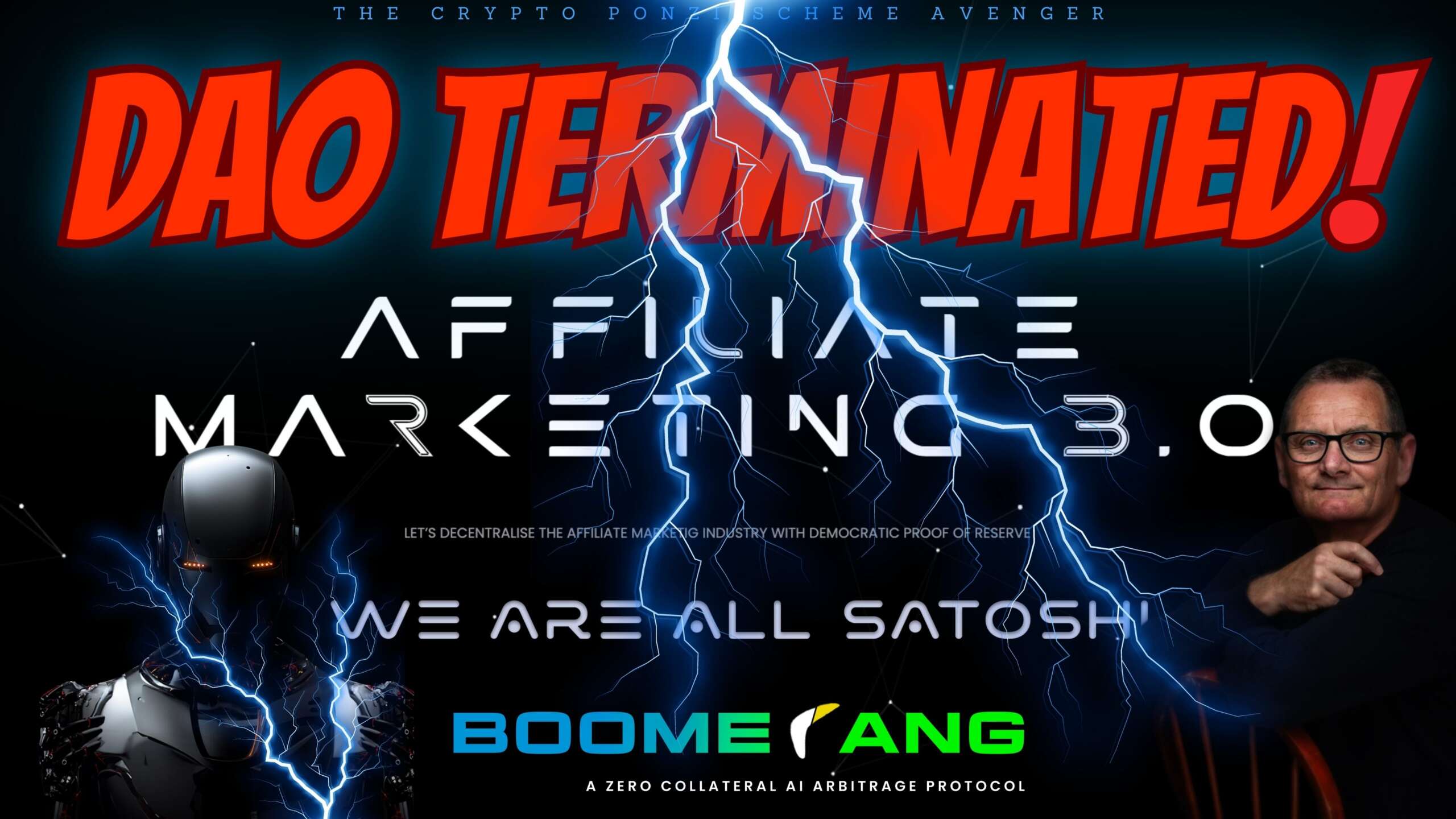 Welcome to another explosive episode on “The Crypto Ponzi Scheme Avenger”! I’m Danny de Hek, aka The Crypto Ponzi Scheme Avenger, and my mission is to expose and shame those running or promoting Ponzi schemes and scams. My channel aims to protect mum and dad investors from losing their hard-earned savings to the deceptive tactics of multilevel marketing bottom feeders.
Welcome to another explosive episode on “The Crypto Ponzi Scheme Avenger”! I’m Danny de Hek, aka The Crypto Ponzi Scheme Avenger, and my mission is to expose and shame those running or promoting Ponzi schemes and scams. My channel aims to protect mum and dad investors from losing their hard-earned savings to the deceptive tactics of multilevel marketing bottom feeders.
Today, we have a jaw-dropping story about Shavez and his failed attempt to establish a DAO, highlighting the crucial need for public awareness and vigilance.
The Story Unfolds
Shavez, an ambitious figure in the crypto world, set out to create a Decentralized Autonomous Organization (DAO), which is a separate legal entity operating on blockchain technology. In the United States, only Wyoming allows the formation of DAOs, making it a unique and legally recognized structure. Shavez applied on behalf of WAAS, naming the project “Affiliate Marketing 3.0.”
Initially, Shavez’s DAO received approval, seemingly marking a significant milestone. However, things quickly took a turn for the worse when it was discovered that the DAO had not provided a valid public identifier. This oversight is not just a minor error; it is considered false or fraudulent information under Wyoming law.
The Legal Fallout
On April 9, 2024, the Secretary of State’s Office in Wyoming issued a Notice of Administrative Action to Affiliate Marketing 3.0 DAO LLC. The notice, sent via email to the registered agent, outlined the serious nature of the offense. According to Wyoming Statute § 17-29-705(c)(iii), a DAO that provides false or fraudulent information or fails to correct such information upon request is deemed to be transacting business without authority. This results in the forfeiture of any rights, franchises, or privileges acquired under Wyoming law, rendering the DAO defunct.
The Secretary of State gave Shavez and his team 60 days to correct the false information. Unfortunately, Shavez failed to comply within the stipulated timeframe, leading to the DAO’s forfeiture and defunct status. This administrative action highlights the importance of regulatory compliance and transparency in the cryptocurrency space.
The Bigger Picture
Shavez’s failed attempt to establish a DAO serves as a stark reminder of the risks associated with investing in poorly managed or fraudulent crypto ventures. As “The Crypto Ponzi Scheme Avenger,” my goal is to shed light on these schemes and prevent unsuspecting investors from falling victim to them. This case underscores the need for thorough due diligence and skepticism when dealing with new and seemingly innovative projects.
Questions to Consider
While Shavez’s DAO has been struck off, there are several critical questions that investors and regulators should consider when evaluating similar ventures:
- Regulatory Compliance: How does the company ensure compliance with financial regulations, especially regarding the offering of guaranteed returns? What licenses and regulatory approvals does the company have for operating its platform?
- Product Viability and Security: Can the company provide a detailed explanation of its algorithm, risk management strategies, and historical performance data? What security measures are in place to protect the platform and its users from potential cyber threats?
- Operational Capacity: What steps have been taken to scale the platform’s infrastructure to support anticipated growth? What is the current capacity of the team managing the platform, and are there plans to expand the team to handle increased demand?
- Financial Transparency: Can the company provide audited financial statements or third-party verifications of its performance and financial health? How are the promised returns being generated and sustained over time?
- Launch Delays: What were the specific reasons for any previous launch delays, and what measures have been put in place to ensure future timelines are met? How does the company plan to communicate transparently with investors about delays or issues?
- Community and Support: What support mechanisms are in place for investors, including customer service and technical support? How does the company plan to engage with and update its community of investors regularly?
The downfall of Shavez’s DAO is a cautionary tale for all involved in the cryptocurrency market. High promises of returns, operational delays, and ambitious scalability claims should be met with skepticism and thorough due diligence. Investors must seek independent financial and legal advice before committing funds to any project. Transparent communication from project leaders and verifiable information about operations and financial health are essential to assess the viability and reliability of any investment opportunity.
Stay tuned to “The Crypto Ponzi Scheme Avenger” as we continue to expose and shame those who prey on unsuspecting investors. Together, we can create a safer and more transparent financial landscape for everyone.








Leave A Comment